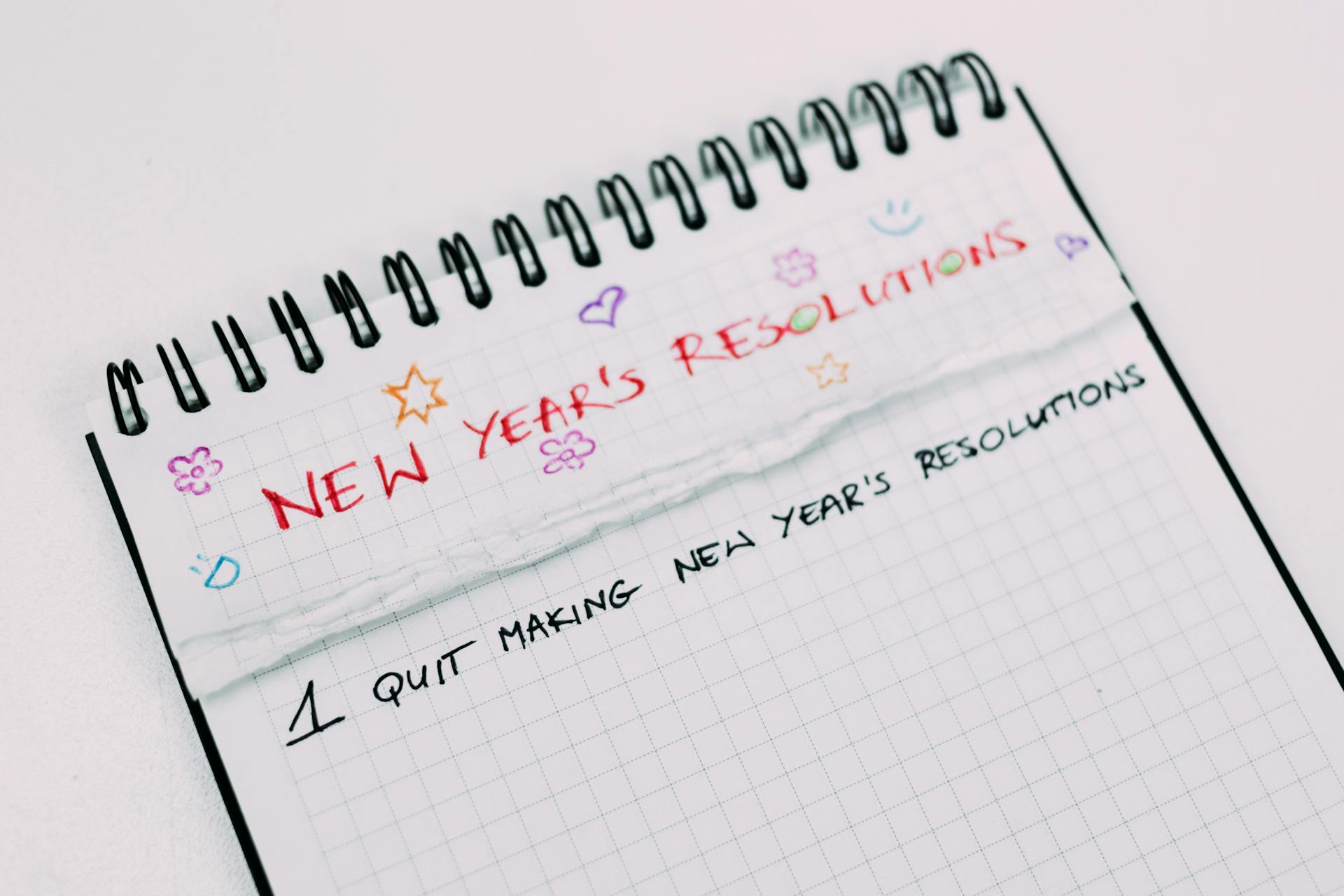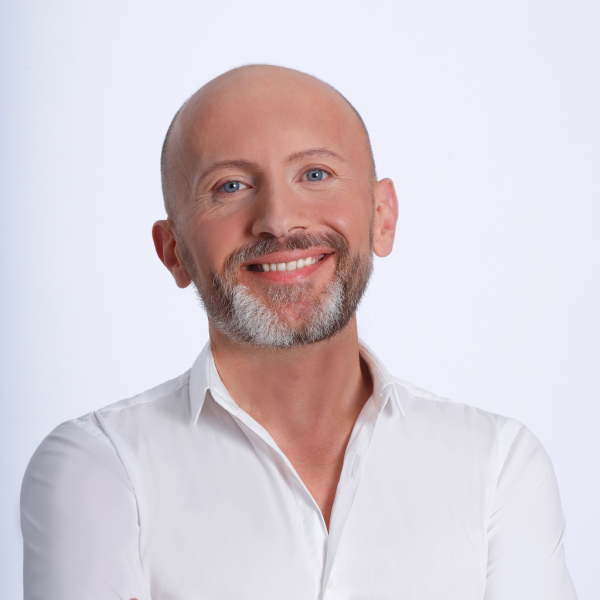
(Photo by Matheus Bertelli)
The New Year has arrived, and January is slipping away. It feels like just yesterday you set resolutions, brimming with hope for achieving new goals and making positive changes in your life. However, while we all strive to stay focused, resolutions often fail to meet our expectations. By the end of January, you lose steam, and guilt and shame set in as you abandon your own desires.
The root cause lies in the specificity of resolutions. They are effective for short-term goals like going for a run today, but they lack the sustained power to keep us motivated throughout the year. Moreover, resolutions often focus on fixing flaws rather than addressing deeper issues. Consider resolutions like losing weight, which implies current overweight status, or getting a better job, which reminds us of dissatisfaction with our current job. Even something like traveling more can trigger self-criticism for lacking adventure in our current life. These resolutions serve as nagging reminders of our shortcomings, hindering their effectiveness.
The distinction between resolutions and intentions lies in their nature and approach to achieving goals.
A resolution is like a goal, presents a clear choice between doing or not doing something. It is characterized by strictness, leaving little room for flexibility. Consequently, the success of resolutions often hinges on whether individuals adhere to them, leading to the tendency for many resolutions to become distant memories by February.
On the other hand, an intention, unlike a resolution, emphasizes being present in the moment rather than dwelling on the past or fixating on the future. It represents an aspiration, an idea, or a concept that individuals intend to embody or execute. Intentions are open-ended and relatively vague, providing a more expansive and forgiving framework for growth.
In essence, intentions guide the actions we take in the present, while resolutions focus on future outcomes. While these concepts are theoretically sound, they can be particularly stressful, especially when individuals experience setbacks or fail to achieve their set goals.

(Photo by freestocks)
Reframing the Significance of the New Year
Let me offer you a different perspective on what the New Year truly represents. While many people perceive January 1 as the commencement of the calendar year, as in the Gregorian calendar, and December 31 as its culmination, there are alternative viewpoints to consider. In some cultures, the vernal equinox (the transition from winter to spring in the Northern Hemisphere and from summer to autumn in the Southern Hemisphere) on March 21 is considered the commencement of a new year. And let’s not forget that the lunar calendar sets January 29, 2025, as this beginning.
My experience has shown that there is no difference between December 31 and January 1, or between any other two days. My clients and I have come to the conclusion that, if you’d like it, every day is a good day to start anew, an opportunity to begin making positive changes and embarking on a path to a healthier and more fulfilling life.
Setting intentions for the New Year: A more effective approach than resolutions.
If resolutions haven’t proven successful in the past, consider adopting a new approach: setting intentions. Unlike resolutions, which are promises you make to yourself, intentions are a mindset. They may not be as specific as something like exercising three times a week, but they are more deeply rooted in your core desires, making them more likely to be fulfilled in various ways.
Here are some examples of resolutions:
i Lose a certain number of kilograms.
ii Meditate for 10 minutes, five times a week.
iii Avoid junk food.
iv Reconnect with an old hobby.
And here are their corresponding intentions:
- Be more kind and accepting of my body.
- Develop a calm mind.
- Live more healthfully.
- Make more time for creativity and play.
The subtle difference lies in the phrasing of the goals. For instance, the goal of losing weight in a year is more open-ended, allowing for various approaches. On the other hand, the goal of developing a calm mind could encompass meditation five times a week, but it also leaves room for other possibilities that contribute to the same effect. This flexibility reduces boredom and the likelihood of quitting as the year progresses. Developing a calm mind could manifest through classes, spending time in nature, reading wisdom traditions, reevaluating relationships, and more. By avoiding a single method, you open yourself to a range of possibilities, increasing your chances of ultimately achieving that deeper goal, sometimes through unexpected means.

(Photo by Daka)
This shift in statements now gives you the chance to create smaller intentions that help you incorporate the larger one. Just like you’d set a big goal (1) and then break it down into smaller steps to reach it, you can start with intentions that focus on the present.
Your smaller intentions can take various forms, such as:
- I’ll nourish my body with nutritious food.
- I’ll move my body in a way I enjoy.
- I’ll prioritize going to sleep at a reasonable hour.
By practicing these smaller intentions daily, you’ll gradually move closer to achieving your larger intention without feeling overly burdened by the future.
Four things you can do right now to enjoy the New Year:
Rest
Unplug from all electronics and take a digital detox. Sleep and allow your body to rest, repair, and regenerate. This will give you a „refresh“ as you enter the New Year, leaving you feeling prepared mentally and physically to work towards your intentions.
Write in Your Journal
Whether you use a beautiful journal or a scrap piece of paper, take some time to pray, meditate, and write down your dreams and aspirations. Then, take action on them.
Clean and Declutter
Go through your closets, drawers, cabinets, and other storage areas. Donate or give away items you no longer use, and throw away the rest. Let go of the old to make room for the new.
Being kind to yourself
Instead of forcing yourself to create New Year’s resolutions, consider jotting down the gifts, lessons, and breakthroughs of the past year. Reflect on how far you’ve come. It’s easy to focus on the losses and struggles we’ve endured, but practicing gratitude for all our experiences goes a long way. The love, blessings, and hard-won lessons we’ve experienced have all come to serve us in some way.
Give these ideas a try this year and see how they go. At the very least, you’ll take a break from resolutions and might discover that you don’t even miss them!
What’s your intention for the New Year? Share your thoughts in the comments below!
